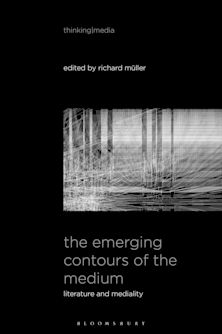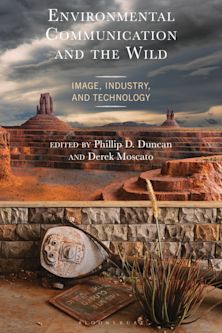- Home
- ACADEMIC
- Film & Media
- Film and Media Studies - Other
- The Global and the National
The Global and the National
Media and Communications in Post-Communist Russia
The Global and the National
Media and Communications in Post-Communist Russia
For information on how we process your data, read our Privacy Policy
Thank you. We will email you when this book is available to order
You must sign in to add this item to your wishlist. Please sign in or create an account
Description
This original book explores the development of post-Soviet media and communications in Russia-a newly globalized environment following radical social change. Unique empirical research on new communications technologies, news agencies, television, and advertising in Russia shows how the experience and effects of globalization, which initially played a liberating role in the downfall of communism, are being transformed by the reassertion of the national. The Global and the National challenges conventional assumptions about globalization and contributes to a better understanding of its theoretical base, as well as its effects on non-Western countries.
Table of Contents
Chapter 2 Media and Communications Systems in Russia
Chapter 3 Communications Technology
Chapter 4 News Agencies
Chapter 5 Television
Chapter 6 Advertising
Chapter 7 Conclusion
Product details
| Published | 14 May 2002 |
|---|---|
| Format | Ebook (Epub & Mobi) |
| Edition | 1st |
| Extent | 176 |
| ISBN | 9780742581708 |
| Imprint | Rowman & Littlefield Publishers |
| Series | Critical Media Studies: Institutions, Politics, and Culture |
| Publisher | Bloomsbury Publishing |
About the contributors
Reviews
-
This book is required reading for everyone interested in post-communist societies, theories of transition, and global trends in the media. Rantanen provides by far the most complete survey of the media in Russia in the last decade, and her analysis scotches some very widely held myths. In particular, her study shows that television in Russia is not completely dominated, as many have argued, by imported programs from Latin America, but features increasing numbers of popular programs produced inside the country itself. Rantanen is clearly right to argue that the lesson of the Russian experience is the continuing importance of the national dimension to the mass media.
Colin Sparks, University of Westminster
-
Addressing globalization, media, political transition, and Russian studies, Terhi Rantanen's important book contributes to the discourse in a number of different fields. The argument is clear and well-supported.
The Russian Review
-
This text contributes significantly to the discussion and theories of globalization and new communication technology in post-communist Russia.
Southern Communication Journal
-
Terhi Rantanen has produced a giant of a little book that contributes to debunking many theories of the globalization of media and communications that continue to hold sway in academia. I wholeheartedly recommend this work to anyone interested in Russia and in post-communist evolutions and media studies; it should be required reading for any graduate class that focuses on international media and communications system.
Peter Gross, Slavic Review



































